As You Like It Residency Report -- WATE in detail
In July 2018, Warwick Awards for Teaching Excellence funded a week-long residency with The Pantaloons, the professional theatre company that I co-founded in 2004 and of which I continue to be co-Artistic Director.
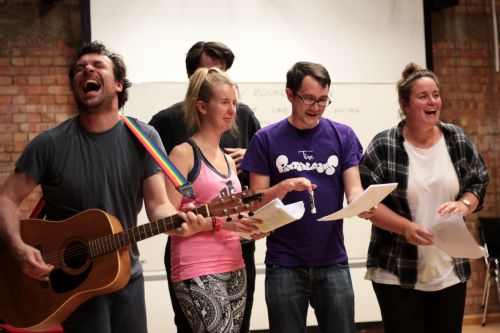
The residency allowed 25 Warwick students to participate in the first week of rehearsals for the company’s As You Like It, a production that went on to tour the country for three months. Taking place in the Humanities Studio (by kind permission of the Institute for Advanced Teaching and Learning), the week was a great learning experience for students and professionals alike, and generated numerous ideas that shaped the final production.
The Residency
This was an intensive dramaturgical exploration of the play. Each day, I led a series of exercises and investigations with the actors and the students, using a combination of discussion and practical work. Between workshops, students were invited to spend time researching individual tasks and topics that would inform our discussions later in the week. The idea was to provide a rare opportunity for students to get an in-depth insight into the play in practice, as well as developing their research and dramaturgical skills, and contributing to the development of a professional production.
Having read the play in advance, students arrived on the first day ready to explore what we called the “three worlds” of the play: Duke Frederick’s court, Duke Senior’s court-in-exile, and the world of the shepherds. We collaborated on a close textual analysis of these three worlds and then started to brainstorm key words and images we associated with each; this work then informed a series of practical exercises in which we developed movement vocabularies for each of the worlds. Students were also divided into four groups, one for each professional actor, and given research tasks relating to one of that actor’s roles.
Each subsequent day started with a group check-in, in which the students and the actors discussed the results of their research so far and refined their questions. We incorporated feedback from the students’ research tasks as we worked on and discussed the scenes, turning to our student expert in any particular topic (wrestling, carnival, melancholy, costume, etc.) whenever it cropped up. On day two, we focused especially on the first few scenes of the play – those set in the court. We built on the movement vocabulary we had established on day one, focusing especially on physical tension. The following day was the “green world” day, in which we workshopped the first few forest scenes (and took an enjoyable excursion into the woods on campus). We did some exercises on cross-gender performance, and the layers of gender performativity that the play requires of its actors. As the week went on, we also worked on movement exercises, accepting “offers”, physical focus and working as an ensemble.
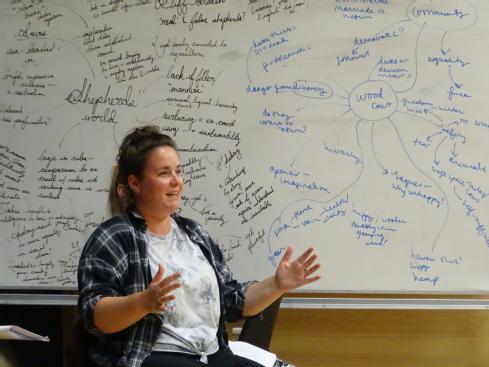
Editing the play for a cast of four opened up a number of possibilities, including the potential to build upon some of the plot strands that Shakespeare leaves hanging. On the fourth and fifth days of the workshop, we tried out numerous scenes, both from early modern texts and from scripts written by the students themselves, that would help us to fill in some of Shakespeare’s gaps. Some of the students felt that the character of Audrey was underdeveloped in Shakespeare’s play, so they found numerous scenes from other plays in which a cynical courtier meets a country wench. One of them – from George Farquhar’s The Recruiting Officer (1706) – made it into the final production. We also decided we wanted to see a bit more of Silvius and Phebe’s relationship, so at the suggestion of the students, we adapted Christopher Marlowe’s poem ‘The Passionate Shepherd To His Love’ and Walter Raleigh’s riposte, ‘The Nymph’s Reply to the Shepherd’ (both published in 1599). We had a lot of fun staging a love scene made up of mashed-up lyrics from modern pop songs. Both of these ideas were also incorporated into the finished version of the production.
Students at the centre
Student feedback was extremely positive. Many felt that the week was “uniquely illuminating in terms of learning more about the play”; students said they had learned new skills in acting and directing, and that they had enjoyed meeting students from other years and courses. Some especially enjoyed the creative writing and research tasks, while others emphasised the collaborative work that happened in the rehearsal room. Many were pleasantly surprised by “the extent of dramaturgical research involved in constructing characters”, and by the collaborative nature of the rehearsal process. A key refrain was that the student participants “felt valued as an academic by the actors”:
“Working in both an academic and theatrical capacity simultaneously was really good fun and seeing our research being utilised practically was very rewarding. This was especially true of the explorations of alternative texts which made me feel like our contributions were really valued.”
“It was a pleasure to work with a professional company and have an insight into how they work. It was fantastic because it was collaborative and our ideas were valued and used. It has been a joy and an invaluable experience for someone who wants to work in theatre.”
“Working with a professional acting company and getting insight into the directorial process has been a really great experience. It was fun to be able to bring a text in and workshop it with the cast.”
“It was really great to see within each rehearsal of the scene certain things changed in response to the student’s suggestions. It genuinely feels like we are all directors for the day!”
Others took away more general lessons about performing Shakespeare, discovering “how flexible Shakespeare can be and how experimentation with different forms and writers can really inform a character”. One participant concluded: “It was all-round brilliant, so please do it again!”
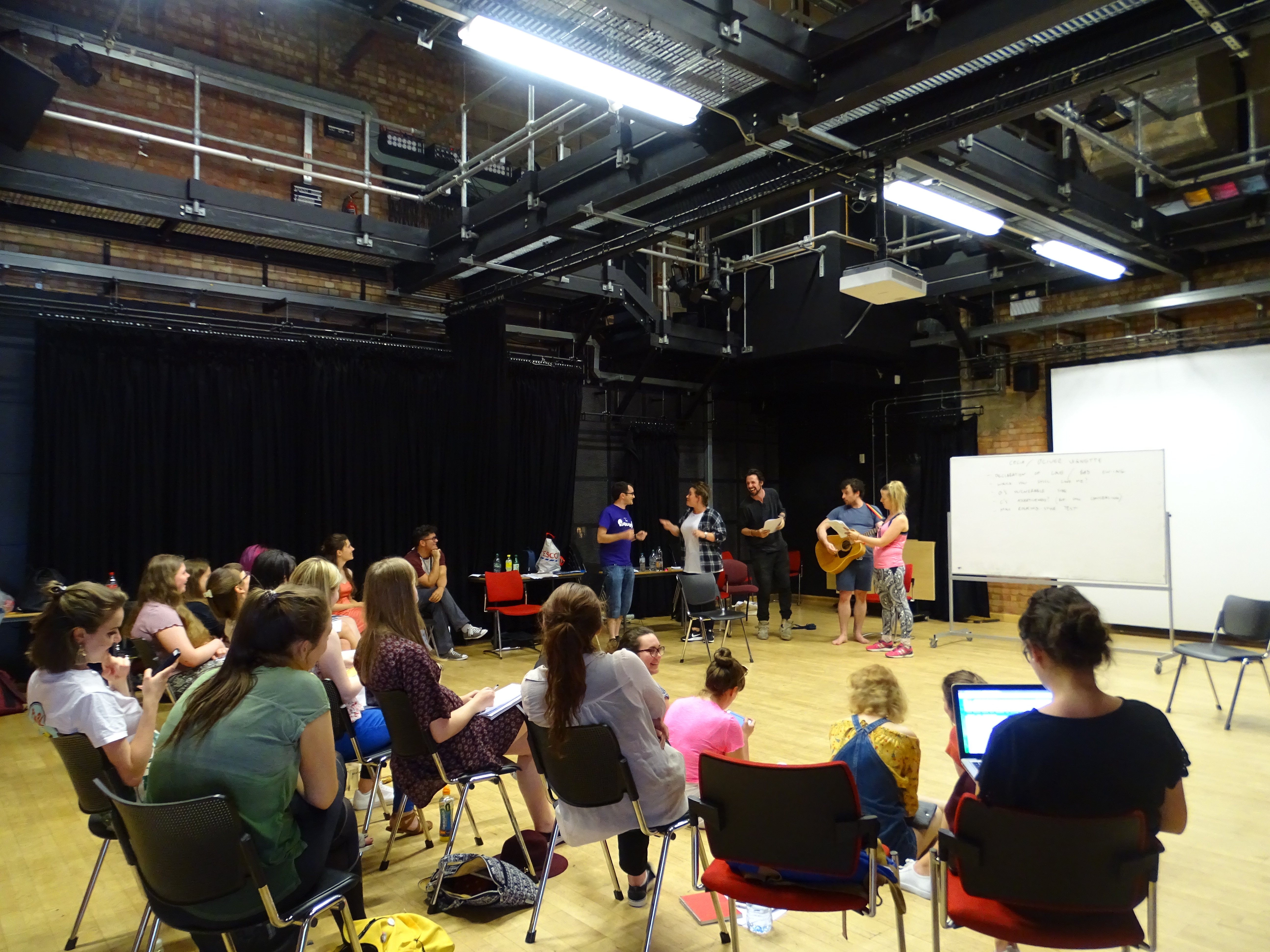
Student perspectives
We asked the students to document the week in the medium of their choosing. Several took photos and videos, while others used social media (check out the #AsYouLikeItWarwick hashtag on Twitter). Two students documented the week in detail on their blogs. Some excerpts:
- “At once funny and erudite, every single person involved in this week has been committed to working out the nitty gritty of the play and characters, while also creating the games and gags that make the whole experience of seeing theatre, live theatre, live outdoors theatre, so enjoyable. It’s a wonderful glimpse at one group’s rehearsal processes, and I know there is hard work to be done over the next few weeks for them, but it’s work with incredible pay-off. A week of working alongside this, and an incredible weekend, has got me feeling incredibly content, so thank you all.” (https://gabrielslibrary.wordpress.com/2018/07)
- “I think I can speak for all of us concerning how excited we are to see the play in our respective home towns! It is also wonderful knowing that our research and contributions have had an impact on the show and actors. This was such a wonderful opportunity for everyone involved. I certainly haven’t stopped talking about it since I have been home!” (https://louisetheatreandwriting.wordpress.com/)
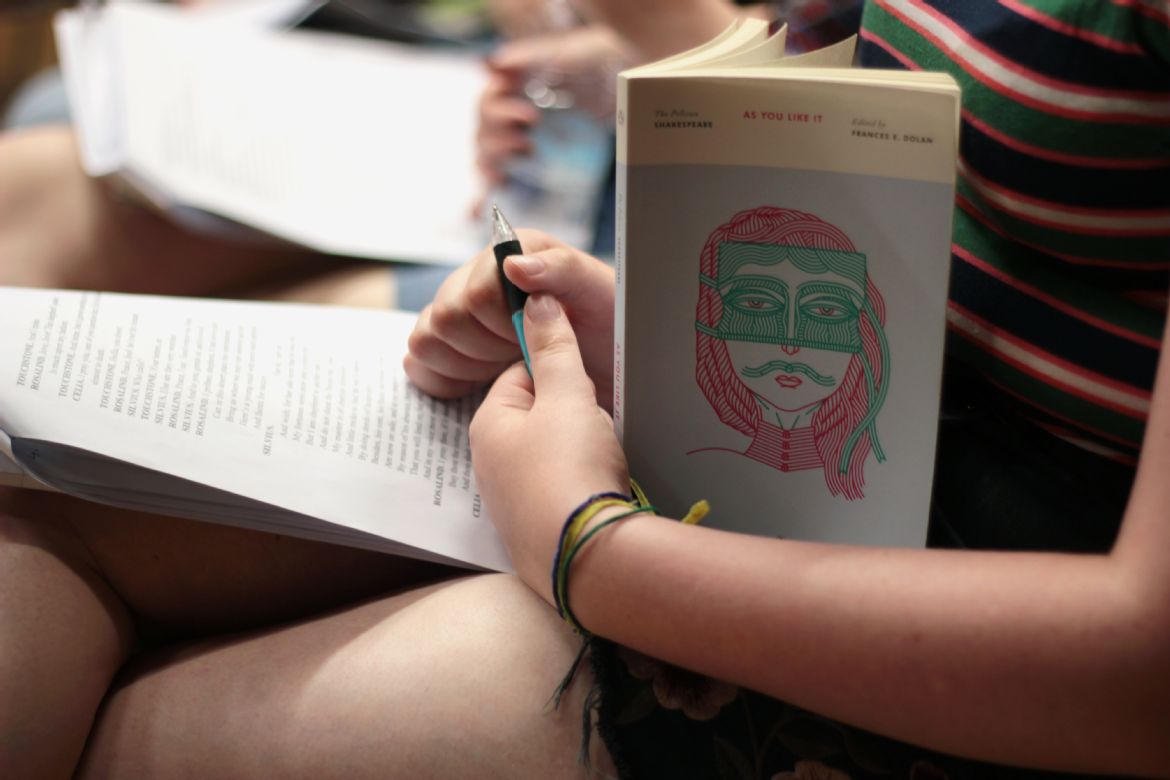
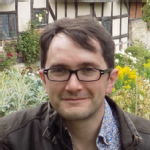
Stephen Purcell, Associate Professor in the Department of English and Compartive Literary Studies, was a Warwick Awards for Teaching Excellence Commendee in 2018.
Of the residency, Stephen said:
The week certainly stretched me as a teacher. While it involved a fair amount of preparation on my part, the real discovery was just how many ideas were generated in the rehearsal room. Wrangling input from 25 enthusiastic and well-informed students into something playable for the actors was sometimes a bit of a challenge, and both I and the actors often felt rather exhausted at the end of each day. But the experience was exhilarating, too, and the sheer amount of creative energy in the room meant that we were spoilt for choice when it came to developing the final production over the weeks that followed. I’ll be taking the lessons from this wonderful week into both my teaching and my directing in the future. I, the actors and the students are all keen to repeat the experiment with future productions, and I’ll be looking for ways to make this happen.
Photo credits:
- Marta Meazza (first and fourth)
- Meg Porter (second and third)
